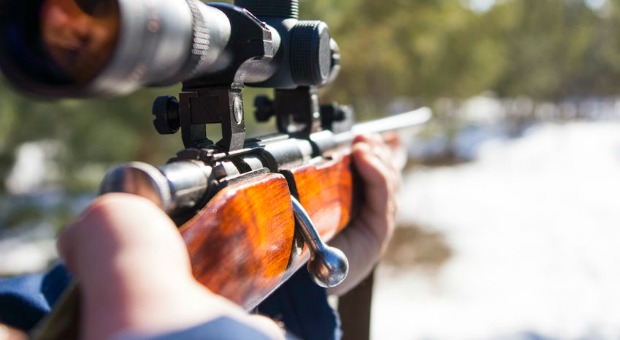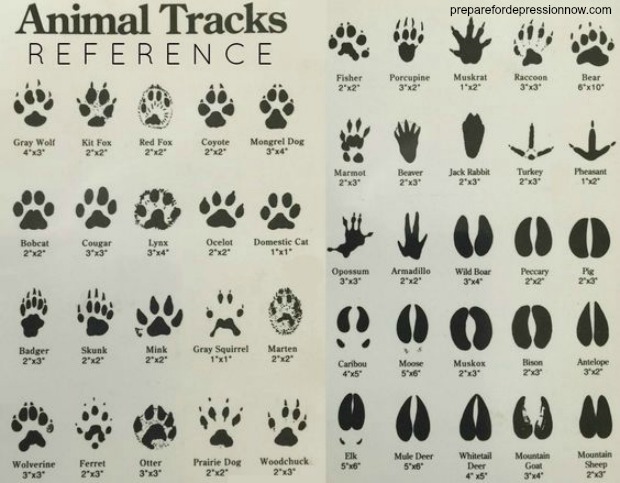Winters can be harsh and if hunting is a hobby you enjoy, it is important to be aware of the equipment requirements, hunting laws, gun certifications and proper apparel necessary to have a successful hunting trip in the winter.
Hunters aren’t required to have a degree, ACLS certification or CPR training, but they should be familiar with the basic demands of hunting.
This sport in the winter can be enjoyable, if hunters prepare by studying the different types of animals and birds, know the right clothing and equipment they should use, and understand other important techniques of hunting.
Any activity is dangerous if the participants are not aware of or do not understand rules and regulations surrounding that activity. Hunting, specifically, can be a very dangerous game if you aren’t aware of its basic guidelines and procedures.
Here are our top tips for understanding the do’s and don’ts of hunting when it comes to the winter hunting season.
Licensing and Certifications
We know it’s basic, but let’s state it again. All states require a hunting license or a tag that allows people to hunt. Whether they are using a gun or traps, all hunters need licenses in order to go out and hunt. Certain states also require licenses to set out traps for different animals.
Before leaving for a weekend trip, hunters must gain a license or certification showing they are able to own a gun and/or set a trap. Getting the correct paperwork can prevent hunters from paying hundreds of dollars in fines.
Animal and Bird Seasons
As winter continues, it’s important that hunters know the rules and regulations regarding animals and their hunting seasons. Depending on the state, specific animals and birds aren’t allowed to be hunted during certain months of the year.
Each state has different regulations when it comes to the hunting of animals, so it’s important that hunters are familiar with state regulations wherever they are.
Never leave for a hunting trip without having a hunting license and knowing which animals are in season. Before starting a weekend of living in tents and hunting food, hunters should do their homework and find out what animals and birds they are allowed to hunt to avoid paying a few hundred dollars in fines.
Fighting the Weather
Keeping warm is essential in the winter, especially for those who spend hours tracking and hunting animals. The cold can make it harder to concentrate. When it is bitterly frigid outside, the weather is often all people can think about.
Focusing on the weather instead of the gun in your hand can be dangerous to yourself and those around you. When planning hunting trips, look at the weather forecast. It is best to be flexible and adjust your plans when there are clear signs of a storm.
Think about the Donner Party and how that brutal snow storm found our forefathers trapped in the mountains. They learned the survival lesson the harsh way, but you can prepare now and don’t repeat their mistakes.
Discover the secrets that helped our forefathers survive in the wild!
If you do need to hunt during a storm, there are three time periods that are safe for hunters: before the storm, mid-storm, and post-storm.
Hunting ahead or behind the storm will allow hunters to know if they need to stop or if it is safe to keep going. Mid-storm can be a more dangerous time to hunt in, but if you watch the storm you can track where it is going or when it starts to lighten up.
A mistake many hunters make on their winter hunting trip is thinking they need several layers. The more layers a hunter wears, the more they will perspire and the harder it will become for the hunter to move about quietly and efficiently. Adding layers will keep you warm, but the layers can often add unwanted bulk.
Mobility while operating any type of weapon is essential. If you cannot move efficiently, the risk of someone getting hurt increases. As important as dressing warm is, it is good to keep in mind the question whether you can move efficiently or not.
There are several options of clothing that keep you warm without adding bulk. Below are listed six useful pieces of clothing that provide warmth and protection while still giving hunters the mobility that they need.
Parkas
Purchasing a parka that is designed to keep in the warmth, but also cut down the bulk, will help the hunter stay warm without having to worry about cutting out mobility. Proper insulation doesn’t have to mean a bulky jacket. A simple layer of fur on the inside of the jacket can keep a hunter just as warm as if they were wearing several layers.
A parka will help keep out the cold without adding resistance to the hunter’s movements.
Elevation jacket
At any elevation, weather can change and fluctuate drastically. In addition to keeping warm, hunters often need to find ways to keep dry. An elevation jacket is a lightweight jacket that can stay that way even in the pouring rain. With water-repellent fabric, it is able to keep heat in while keeping water out.
An elevation jacket will allow the hunter to stay warm, dry and able to still move without limiting mobility.
Coldfront Bib Pants
Legs need just as much coverage as the upper body. Hunters need pants that use the same technology and fabrics as their jackets to keep them warm and dry without preventing mobility. Coldfront Bib pants are meant to do just that. With micro-grid fleece lining, these pants administer an extra layer of insulation to keep a hunter’s legs warm. This material also helps keep legs dry in snow or rain.
Not only do coldfront bib pants keep legs warm and dry, they also have the ability to shield against harsh winds.
Hunter Extreme Overalls
Hunters looking for clothing that covers their whole body and helps keep them warm should look to the 70’s trend of overalls. Hunter Extreme Overalls are built to trap body heat, keeping the hunter warm even in extreme weather conditions. They give the warmth needed and also the room needed for hunters to move properly.
Some overall designs contain removable hoods, removable hand muffs, and hand warming pockets designed to withstand rain, snow, and wind.
Wooltimate Ninja Hood
Covering the mouth and nose is important for keeping a person warm and preventing frostbite. A Wooltimate Ninja Hood covers the head, mouth, and nose. With a blend of wool and fleece, a ninja hood has the abilities to block out rain, snow, wind, or any other extreme weather condition. The hood also covers the neck so a hunter is truly covered top to bottom. Due to the eyes being left uncovered, pairing a Wooltimate Ninja Hood with goggles or glasses can provide the best results.
Infrared Scent Control Gloves
With jackets sporting extra layers, pants to keep out the wind, and a hood to cover the face, all that is left for a hunter to keep warm as they hunt is protection for their hands. Hunters need gloves that keep their hands warm without taking away mobility.
Infrared scent control gloves take it one step further. Animals can detect a human from several miles away based on their distinct human scent. Scent control gloves eliminates natural body odor which can allow hunters to sneak up on their target. These gloves also absorb body heat and radiates it back into the gloves to keep hands warm.
Tracking Tips
When tracking animals, hunters can find them by their footprints, broken twigs and places where they have slept. Another way hunters can find a group of animals is by looking for water. Wherever there is water, animals are not far from the source.
An animal’s main goal in the winter is to stay warm. This means wherever the sun is shining is where animals tend to be. They can often be found on hills or ridges facing the sun to keep warm. Hunters should try to hunt in sunny areas and avoid shady spots.
Snapping twigs in the woods is unavoidable. When it happens, hunters should wait a full minute before continuing their hunt. By waiting a full minute, it will give the animal time to forget about the noise and go back to what they were doing.
When deciding on a location, keep in mind that putting yourself in a single location and expecting animals to come to you is unrealistic. Moving about will increase your possibility of coming across an animal to hunt, especially in cold weather.
Animals don’t stay in one place and neither should you. Animals also tend to shift to different resting places every day. When deciding where to hunt or when, hunter’s should study the animals they’re tracking and take notice to how they react to the cold.
Winter causes many animals to switch into survival mode where they begin to find food more carefully. If hunters study different animals and how they behave in the winter, they can find ways to catch the animal without scaring it off.
Whether you’re hunting ground consists of green trees or snowy mountains, learning game-scouting techniques will help the hunter find animals in any type of environment.
Click the banner below and discover how to prepare traps and hunt wild animals, the old way!
This article has been written by Ryan Thompson for Survivopedia. Follow Ryan on Twitter – @ryan_thompson03.
References























































































In the cold, neither the truck nor the 4-wheel drive car (new battery)would start. We pulled both batteries and placed them into the pick-up camper which was heated. After the morning hunt, we took both batteries with the second battery hooked in parallel & started the smaller vehicle and the using the running vehicle jumped the truck. Yes, the AM hunt was successful. How cold was it? The deer’s blood on the ground was white/pink having frozen immediately. It took a moment to realize what I was looking at. Before you go down a trail be sure your ground clearance is adequate. Chains make sure you’re coming back out, an axe for down trees (sometimes they fall in wind and snow), I can’t believe people don’t have a shovel.
As well as bibs jackets/parkas should be quiet Micro fleece with a quiet waterproof /wind proof Gore-Tex or coating will keep you dry (hypothermia isn’t nice). If you have it with you you can take it off and put it in your backpack if you don’t you are screwed! If you start getting too warm while hunting switch to a summer wt, billed, mesh cap. Your head can cost you a loss of 70% of your body’s heat- so, it can really help prevent sweating. Expect temps to vary with the time of day (sunlight) this is true in MN, WI, and to a greater extent the Rocky Mountains.
Learn to walk quiet, hunt the wind, break-up your outline, stop and use binoculars.